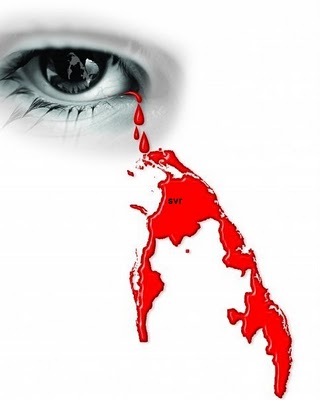Peace doesn’t come easy, so start working at it, says a team of South African peace delegates, to Sri Lanka’s business community.
As Biki Minyuku, the former head of South Africa’s Truth and Reconciliation Commission put it, "There are no short cuts to peace, it’s a long haul flight." Minyuku was explaining to the local business community on Tuesday, how South Africa moved from the apartheid social-straight-jacket to democratic governance.
"You have to get started," says John Hall, a businessman who is also the chairman of South Africa’s National Peace Accord.
The South African team, that has had hands on experience in driving peace from within the private sector, is in Sri Lanka to share their experience with the local business community.
It was South Africa’s business community- later joined by religious leaders- that pressured political parties to put an end to decades of apartheid driven violence that crippled the countries economy.
Now Sri Lanka’s private sector too, is stirring itself awake to reactivate the peace process through the Sri Lanka First movement.
As the South Africans point out, nothing short of full time dedication to peace facilitation can build trust and credibility in the private sector.
In fact it was the business community and the churches that convened South Africa’s first peace meeting - the then government, the National Party finally called for peace talks when the violence became uncontrollable but no one would come.
So now Sri Lanka’s business community is taking a leaf off the South African experience and is trying to coax various political parties and the LTTE back to the peace table.
They are also looking at setting up a permanent secretariat and a trust fund for full time peace activity.
"We invite you to help us start this business fund that is very much similar to the model in South Africa," said Neela Marikkar Chairperson of Sri Lanka First.
South Africa’s Business Trust was set up by its businesses that went so far as to endow the fund with one billion Rand to start off with.
The trust is to this day sustained by funds from companies, matched by government contributions.
The money, on corporate-government consensus, goes into selected social and economic development activities like education and employment generation.
Although the local business community did make a proposal for a similar fund in Sri Lanka ‘’the government,’ they say ‘has not acknowledged the proposal.’
Truth and Forgiveness
The powerful Truth and Reconciliation Commission was part of the social healing process, where South Africans learned about thousands of deaths, tortures and disappearances.
"Out of thousands of amnesty applications around 60 percent was granted amnesty, but these people didn’t have to face street justice," says Minyuku.
He tells a story of a man that was tortured and torn in two up to the neck.
"The Arch Bishop Desmond Tutu fainted when he heard the man’s story."
But thousands of torture victims and families were willing to forgive similar atrocities and reintegrate their torturers back into society on an amnesty.
"South Africans must be very forgiving," says a local businessman.
"No. South Africa wanted reconstruction after decades of apartheid and violence. Street justice would have a spiral effect of violence, not reconstruction," says Minyuku.
South Africa also restructured her security forces after the peace accord.
Law enforcement and security personnel were given the option of joining the new South African forces or leaving their jobs.
Those that opted out were re-trained and re-oriented for civil occupations.
The South African administration set up a personnel register to track security personnel that had vacated their posts, including deserters.

No comments:
Post a Comment